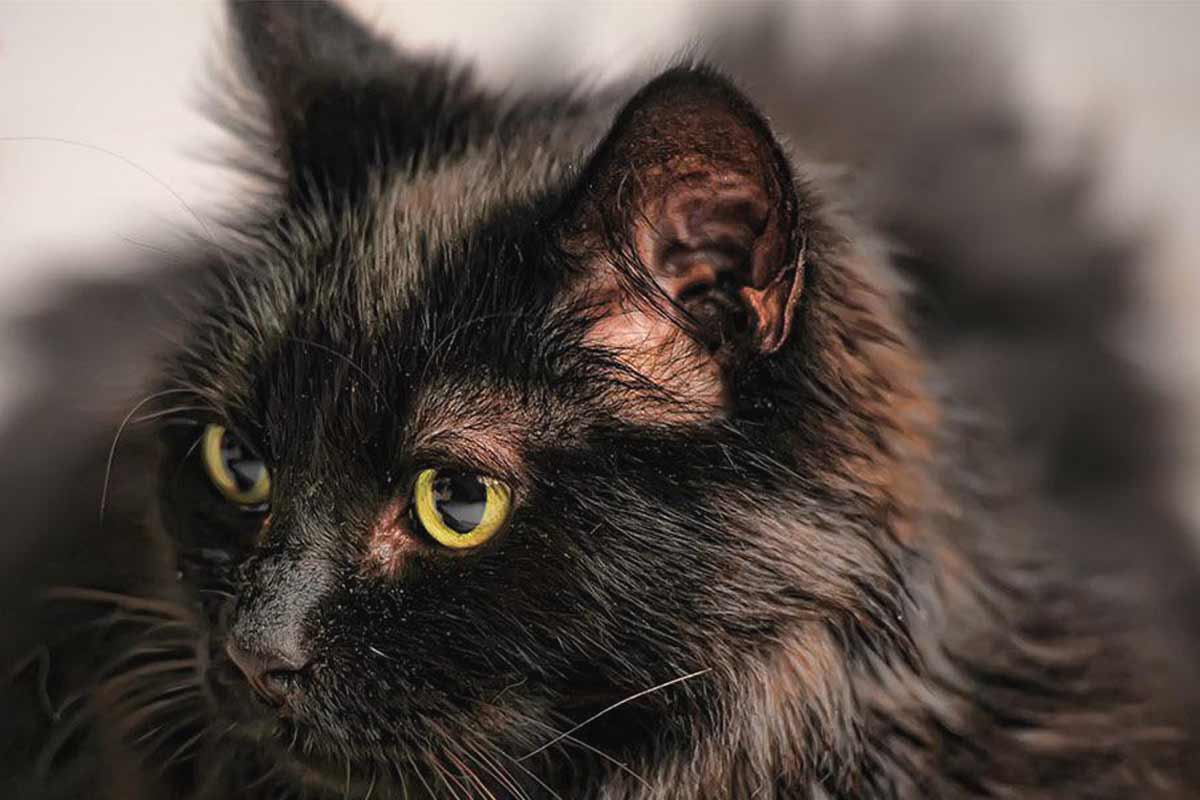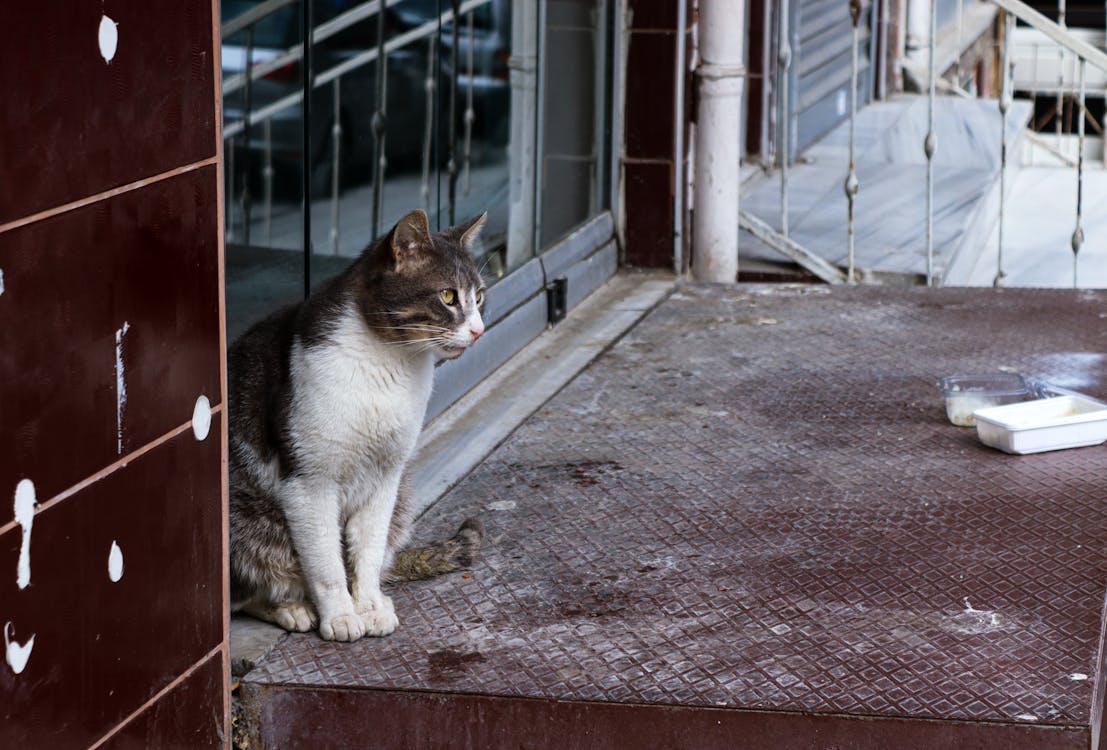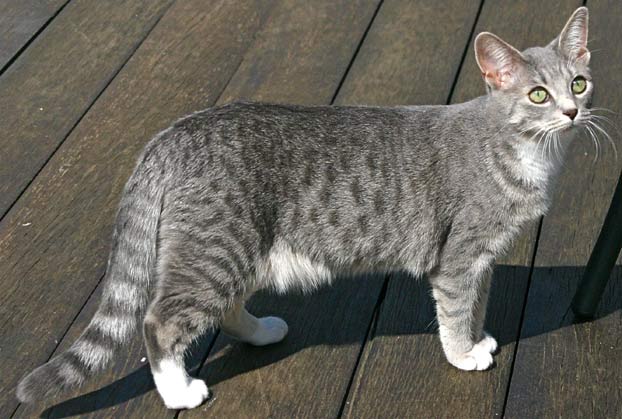How to tell if your cat can’t see well? Let’s also talk about what you can do. Remember Mittens, the mischievous tabby who stole my heart (and several socks) years ago? Despite her boundless energy and playful spirit, I started noticing something unusual. She’d bump into furniture, hesitate at familiar doorways, and seem startled by sudden movements. It turns out, my dear Mittens was losing her sight. While the diagnosis was initially daunting, understanding her visual impairment and making adjustments transformed our lives together.
This experience ignited a passion in me to help other cat owners recognize and address potential vision issues in their feline companions. After all, early detection and understanding are crucial for ensuring your cat’s well-being and quality of life. So, let’s embark on a journey to demystify feline vision, explore the signs of visual impairment, and discover strategies to help our whiskered friends navigate the world with limited sight.
A Cat’s World in Focus: Strengths and Surprises
Unlike humans, cats are natural-born hunters with incredible peripheral vision, allowing them to scan their surroundings with lightning speed. Their night vision also surpasses ours, thanks to special adaptations in their eyes. But here’s the purr-fectly surprising fact: cats aren’t miniature eagles with perfect sight. Their depth perception isn’t as sharp as ours, and they struggle to see fine details up close. This explains why your cat might chase a dust bunny with laser focus but miss a giant stuffed toy right in front of her.
Now, let’s debunk some common myths about feline vision. Contrary to popular belief, cats can’t see in complete darkness – they rely on their exceptional night vision, which amplifies available light. And while they have excellent vision in low-light conditions, they still need some light to see. So, that “seeing in the dark” superpower is more like having a super-powered nightlight!
Signs Your Cat Might Be Seeing Stars (or Not)
The good news is that cats are masters of adaptation. Even with limited vision, they can learn to navigate their environment using their other senses: smell, touch, and hearing. However, understanding the signs of visual impairment is crucial for early intervention and ensuring your cat’s comfort and safety.
Here are some key signs to watch out for:
- Bumping into furniture or objects: This is a common indicator, especially if it’s a new behavior.
- Hesitation or difficulty navigating familiar surroundings: Your cat might seem unsure or cautious in areas they once explored confidently.
- Dilated pupils that don’t constrict in bright light: This could be a sign of underlying eye problems impacting vision.
- Changes in behavior: Excessive vocalization, increased hiding, or unusual aggression can sometimes be linked to vision issues.
It’s important to remember that these signs can also have other causes. If you notice any of these changes, it’s crucial to consult your veterinarian for a thorough examination and diagnosis. Early detection can make a world of difference in managing your cat’s vision loss and ensuring their continued happiness and well-being.
In the next section, we’ll explore the potential causes of vision impairment in cats and delve into helpful strategies to create a safe and enriching environment for your visually impaired feline friend. Stay tuned, and remember, even with limited sight, your cat can still live a full and joyful life with your love and understanding.
Other Interesting Articles
- How to Stop A Cat from Spraying after Neutering: 11 Tips
- How to Tell if A Cat is in Pain from Arthritis: How to Help
- 14 Reasons Why Is My Cat Making Weird Purring Noises
- How to Take Care of A Kitten without A Mother: 21 Tips
- What Is Caterwauling? 10 Most Common Reasons Cats Do It
- How to Introduce A Cat To A New Home When Moving?
- Cat Declawing: Tips, FAQs, Health, Alternatives, Pros, Cons
- New Cat? 20 Common Warning Signs When Introducing Cats
- 23 Sure Signs Your Cat May Be in Pain and How to Help It
- How to Stop A Neutered Cat From Spraying: 15 Simple Tips
- 12 Signs Your Cat May Require a Feline Companion
- Feline Pheromones: 12 Ways Calming Cat Pheromones Work
- Do Cats Feel Lonely without Other Cats? 6 Signs of Loneliness
- 10 Reasons Why Cats Hiss: How To Stop The Behavior
- Cat Feeding: Tips, Guide, FAQs, Chart for Kittens to Veterans
- Cat Vaccinations: Schedule, FAQs, Side Effects, and Costs
- 44 Strange, Weird, and Random Cat Behaviors Explained
- 21 Pro Tips for Fostering Kittens: Essential Care Guide
- 18 Cat Sounds Your Feline Makes: What They Mean
- Sexing Kittens: How to Tell, Determine the Sex of Your Kitten




